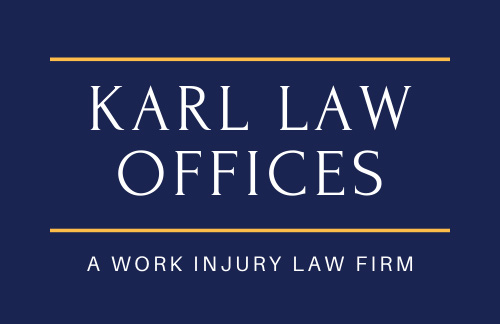Worker's Compensation In Minnesota
What is a Worker’s Compensation claim in Minnesota? I can talk about this in detail until I’m blue in the face so I will try to keep it somewhat brief. Under Minnesota law, an employee injured at work is entitled to payment of Worker’s Compensation benefits which are mainly payment of medical treatment and wage loss. These benefits can be claimed whether the work injury was one that arose out of a specific incident such as a fall or lifting something heavy. In some cases, an injury that came on over time due to repetitive or hard work may also entitle you to Worker’s Compensation.
Even if you have some medical history regarding the injured body part, whether work related or not, if the work you were performing for the employer was more likely than not, in the opinion of a physician, a substantial contributing factor to your current need for medical treatment and/or need for restrictions, the employee has a valid claim that the employer’s workers compensation insurer is responsible for payment of worker’s Compensation benefits.
The Role Of The Insurance Company

The insurance company is responsible for payment of all medical treatment that is causally related to the injury and that is reasonable and necessary to cure and or alleviate the symptoms of that injury. Of course what treatment is related, and what treatment is reasonable and necessary is something to fight about. When an injury is reported to the employer, the employer should then report that injury to their Worker’s Compensation insurance company (sometimes they don’t). The insurance company, upon receiving notice of the claimed injury, should make a decision on primary liability within a couple weeks.
If the insurance company accepts primary liability, it means they will begin to voluntarily pay for medical treatment related to that injury. if the insurance company denies primary liability, no medical treatment or wage loss will be paid voluntarily. Following a denial, it is very unlikely that the insurance company will change their mind. Pretty much the only way to force them to pay for medical treatment and wage loss following a denial is to go in front of a work comp judge and present medical support from a physician relating the employment to the claims work injury and claimed wage loss/need for restrictions or to negotiate a settlement of your claims prior to court.
However, even if your claim is denied, it does not necessarily mean that your claim does not have merit. Often times the basis for the denial may be fairly weak and you may have a strong case. Don’t be discouraged. Just keep in mind that the greater the financial risk your claim represents to the insurance company, the greater the motivation to come up with any reason not to pay.
It’s important to know that (apart from the rare exception) the injured worker has the absolute right to choose his treating physician for the injury. Once you establish a treatment relationship with a physician, you should expect that that physician will be your treating physician for this injury and you will not be able to switch doctors. Therefore, you should be wary of any attempts on the part of the employer to insist that you go to a specific clinic or doctor. Not all doctors or healthcare providers treat injured workers the same, and there are some that are more favorable to the employer and insurer which means less favorable for you.
Stay With Your Treating Physician

Whether your claim is accepted, denied, or first accepted and then disputed, the opinion of your treating physician is crucial to your claim. Even if your claim is denied and you are worried about incurring a bill for treatment, you should still continue to see your treating physician. It’s OK to use whatever health coverage you have in the meantime to get treatment. Even if you don’t have any insurance, you should still see your treating physician if they are willing to treat you.
If your treating physician feels you need limitations on what you can and can’t do at work, he will give you written restrictions outlining your abilities. These will usually be valid through the date of your next scheduled appointment at which time they must be renewed. Only written restrictions from your treating physician give you any kind of excuse to not be at the job performing at 100%. Even if it is obvious that you are injured, any missed work without a note completely excusing you from work puts you at risk of being terminated for cause by the employer.
If your doctor gives you restrictions saying that you can work but with certain limitations, it’s your responsibility to give your employer a copy of those restrictions, at which point your employer has the option of offering you work within those restrictions or sending you home if they are unable to accommodate you with those restrictions.
Continuing To Work While Injured

If the employer offers you work within your restrictions, you will definitely want to show up and do whatever work they have to offer you within those restrictions. If it doesn’t go well, you can always explain that to your treating physician at your next appointment and see if they can modify your restrictions. Whatever the case, it’s very important that you do everything you can to demonstrate that you are still willing to work. you want to hang onto the job and avoid any action that could be construed as a refusal to work or any action that would give the employer a good justification to terminate you.
If you employer states they are unable to accommodate your restrictions and decide to send you home, you have a claim for payment of wage loss for time missed from work. Wage loss of this kind (referred to as temporary total disability benefits or TTD) is paid at the rate of 2/3 of your gross average weekly wage at the time of injury. If your claim is accepted the insurance company should commence payment voluntarily, whereas if your claim is denied you still have a claim for these benefits that will be decided at court. All periods of claimed wage loss must still be supported by written restrictions/medical support from your treating physician.
If your doctor gives you restrictions that result in you being able to earn some income but less then you were earning on average at the time you were injured, you have a claim for payment of 2/3 of the difference between what you were earned that week and what you earned on average at the time you were injured. These benefits are referred to as temporary partial disability or TPD.
When A Neutral 3rd Party Is Needed

If you were injured and off of work, or even if your restrictions are being accommodated, either the insurance company or your own attorney may request the assignment of a qualified rehabilitation consultant or a QRC. This can be thought of as another Worker’s Compensation benefit that the insurance company is responsible for. The QRC serves the role of intermediary between you, the employer, the insurance company, the doctors office, and attorney if they are involved. They can help determine whether work offered after the injury actually is within your restrictions as well as help resolve a myriad of other issues.
It’s important to know that once a QRC is assigned by the insurer that you have the right to request a change of QRC within 60 days for any reason. It’s not a good idea to leave the insurance companies choice of QRC on the case because they are most likely loyal to the insurance company and will attempt to influence your doctor to do things that will weaken your claim and or make things cheap for the insurance company which means probably not good for you.
If you’re reading this and have had a QRC on your claim for less than 60 days, it would be a good idea to give us a call and we can give you some names of consultants who will not be in the pocket of the insurance company.
